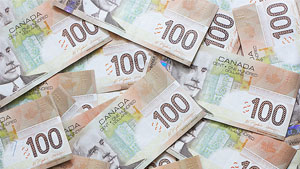Big four record labels blamed for piracy

Given how aggressively the recording industry likes to pursue distributors of illegal content, one would assume that the industry easily finds those responsible when it comes to those responsible for copyright infringement. But this has been refuted by recent events in Canada, where a massive lawsuit against the main tycoons of the world of recording is brewing. Members of the Canadian Recording Industry Association face the prospect of damages ranging from $ 50 million to $ 6 billion due to the use of music without the permission of their authors.
A class action lawsuit was filed back in October 2008, but received a new sequel, when the heirs of the famous jazz singer Chet Baker joined the injured party.
Professor of Law at the University of Ottawa, Michael Geist in his blog talks about the changes in legislation that have occurred since the eighties. In fact, currently, record labels are not required to obtain a license to use songs in various compilations or compilations. Instead, they used the song without paying for it or receiving permission to use it. Instead, they added the song to the list of tracks waiting for permission to use and pay. That is, in fact, it turned out that the record companies seemed to promise the owner of the rights to pay off one day after using the work.
As you already understood, record companies have chosen a different, less legal way. They began to use compositions without adding to the pay lists. The list for respondents exceeded 300 thousand songs, due to which, according to the plaintiffs, companies were enriched by selling music without permission and without paying any royalties.
Plaintiffs also speak of a hypocritical stance taken by the recording industry. In particular, the lawsuit states that the companies showed “reckless and capricious attitude to copyright, in contrast to the stated policy of its stubborn protection”.
Companies recognize unpaid royalties worth more than $ 50 million, but the actual degree of possible damage to copyright holders may be about $ 6 billion. These are the statutory amounts of possible penalties and this means that labels can be billed at $ 20,000 for one violation.
')
Source: https://habr.com/ru/post/77805/
All Articles